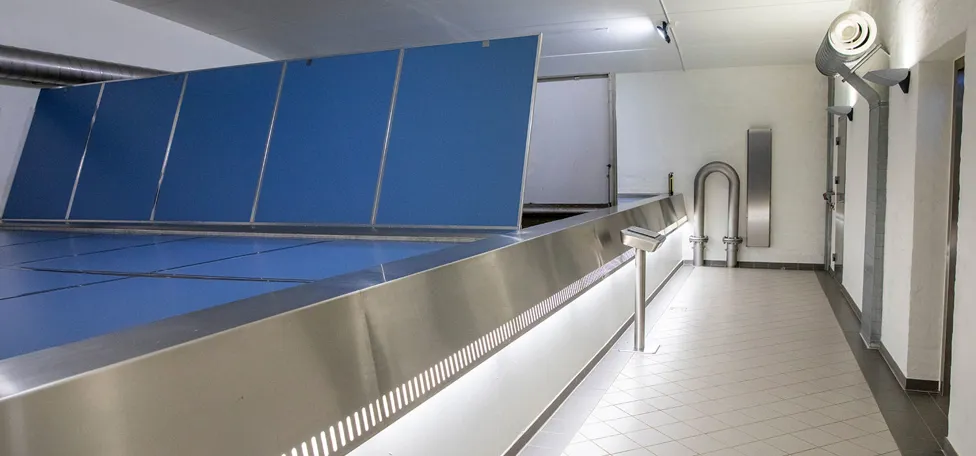- Services /
- Optimised water distribution
Optimised water distribution
From planning and analysing to design og practical implementation. VCS Denmark has comprehensive knowledge about efficient design and operation of water distribution systems

Society, the customer base, accessibility of water and local environmental conditions are all factors that impact water utilities across the world to varying degrees and in different ways. However, one challenge is shared by all water utilities worldwide, i.e. controlling and minimising water loss in the distribution network for potable water.
VCS Denmark has practical experience in both planning and operating distribution systems for potable water. Furthermore, we have years of experience in providing specialised training programmes to other utilities. Our objective is to disseminate traditional workmanship as well as knowledge and knowhow concerning efficient and innovative methods and technologies.
In 1993, VCS Denmark began carrying out district zoning of the pipeline network; from one large inter-connected network system, to a ring-connected main network with a supply system divided into district metering areas (DMAs). This branch architecture reduces the number of required valves in the system dramatically and enables more accurate determining of the locations of leakages. On average, onsite repairs in VCS Denmark’s supply area commence within four hours from the time of detection of a leak. The result: significant reduction of water loss (NRW).
Today the value of DMAs is widely acknowledged. DMA systems provide water companies with strong tools for analysing district consumption and locating areas with leaks or pollution. Our long-term experience with this system has generated a lot of knowhow and insight into ways of operating and optimising DMAs. Since the implementation of the DMA system, we have expanded our use of SCADA systems for control and surveillance, enhanced automation and implemented intelligent software solutions.
In recent years, the introduction of intelligent systems in utilities has spread gradually. While the implementation of intelligent systems was still in its infancy, we decided to explore and invest in the new technologies and contribute to the further development of intelligent applications and systems. Right from the beginning, we started developing hands-on knowhow and in-depth knowledge about usage, maintenance and optimisation of intelligent systems.
Our early venturing into the practical application of intelligent systems has given us an advantage and a strong basis for qualified decision-making in relation to the design, requirements, functionality and usability of such systems. We have successfully established a highly optimised distribution network for potable water that is reliable, energy cost efficient and needs only little on-site supervision.
Automation, intelligent systems and DMA systems, all contribute to the reduction of water loss in the network. We have implemented:
- Pressure control in the distribution system
- Monitoring and operating the network via automated systems
- Detection of leakages using our SCADA system
- Prompt intervention and response to bursts (internal policies)
- A strategy for investments in the distribution network
An additional benefit gained from dividing our supply area into zones is that it significantly strengthens our ability to detect the source in case of pollution. In such an event, implementation of UV-treatment in key locations limits potential spreading of the pollution to other sections.
VCS Denmark has a relatively large water distribution system that receives water from several waterworks and booster stations. An important factor in controlling the amount of non-revenue water (NRW) lies in controlling the pressure in the distribution system.
Advanced software is applied to set and adjust pipe pressure. A network simulation program carries out online calculations based on real-time readings of flow and pressure in the various sections of our DMAs. The calculations are used to ensure the most optimal control settings for each of the pumps in our system, – and to maintain relatively steady pressure throughout the distribution system.
This system increases the service life of our pipes and enables us to reduce energy costs. We use the energy required - no more, no less.
For years we were among the best European water utilities based on NRW. Our lnfrastructure Leakage Index (ILI) was down to merely 0.7, and effectively challenged what was deemed theoretically possible. Now a days our ILI is a little higher, but still below 1.0. This is due to a deliberate decision to diminish our investments in pipe renovation for some years and pursue other needed investments; accepting that our leakage will increase slightly.
We can estimate how much the increase will be, and therefore, take a qualified decision that investments in other infrastructure projects is more valuable for us.
Assessments - such as balancing NRW against value added by investments in other parts of our infrastructure - will increasingly become the norm as the use of Asset Management becomes more fully integrated in the planning and operation of modern water utilities. There have never been unlimited financial resources, but following the principles of Asset Management, it is possible to evaluate investments and operations in the same process. At VCS Denmark, Asset Management is a tool of growing importance in controlling our expenses and our level of service.